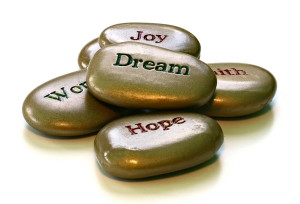Remember the old rhyme “sticks and stones will break my bones but words will never hurt me”? It was supposed to make us feel better when others were calling us names. What a LIE!
If words have no power then why do we use them? In the United States we just celebrated the power of words – our Declaration of Independence. Look at how many times countries have sat down to mediate a treaty or declare a cease fire.
That is the power of words. It is the power that identifies and guides our intentions. It is the basis of contracts, verbal agreements, marriages and manifestos. It is why you can sue or be sued for slander and liable. Just words – I don’t think so. Not just words, but the power of words.
Think about how you feel when someone has “lied to your face”, the anger, hurt, disappointment and the distrust. Your opinion, feelings, actions and relationship with that person are changed. By the power of words.
Think about how you feel when a company states that a product will function in a certain way. And it doesn’t. You lose respect for that product and probably the company. You might even decide to never do business with that company again.
Affected By Words
Is it any wonder then that we are so intensely affected by the words we say to others and that they say to us. Sometimes we hide behind words. Or the lack of words. We may not tell someone how much we care about something or them. Because we know that once those words are out there, it changes things. And if they don’t respond to our words the way we would like, we know we are wide open for emotional pain. We even sometimes cloak our words with the statement “I was just kidding” to deny the power of our words. It doesn’t change the affect.
What about when others use words against us? We have long ignored that action as what it truly is, abuse. Mental abuse. Verbal abuse. Emotional abuse. I don’t mean when someone unknowingly says something that hurts your feelings in a one-time discussion, like saying you’re grumpy (when you are). And I don’t mean children saying things out of ignorance and deep honesty.
I’m talking about of course, when someone calls you an insulting name. But I am also talking about that more subtle way of using words to make you lose your confidence in yourself. Or telling you that you can never be good enough or do well enough. Or be smart enough. Or pretty enough. Or that no one will ever want you. That is abuse.
Sometimes we have difficulty calling verbal, emotional and mental abuse what it is because we can’t “show” the harm. We don’t have bruises or bloodied faces or broken bones to prove it happened. And sometimes others either seem to not take it seriously, or we fear they won’t. Sometimes they see it but don’t say anything because they don’t think you see it yet. Or they don’t want to interfere, just like with physical abuse. They may fear you will reject them. Or they just don’t know what to say.
But harshness, selfishness, disrespect, name-calling, manipulation, a critical attitude and shaming are abuse. Each infliction verbally is like a punch to the face and the heart. The worst is that all of these actions not only wound but wear down self-respect and confidence, eliminating a clear perspective.
You may not even recognize that you are being abused. You lose the will to stand up for yourself, if you ever had it. You get to the place where you don’t even recognize yourself and your life. Till you speak out loud what is happening to you, to someone who is safe. That can be the first step back to a clear perspective.
It may feel hard to start this process, though. You may have a hard time understanding how your life got so far out of control. That’s okay. You will walk through it one step at a time. You can regain or build your self-compassion and self-respect along with your courage. Life can be safe and good. Don’t wait, start today.
And if you know someone who is hurting from verbal and/or emotional abuse, don’t shame them. Encourage them to accept themselves but not necessarily their life. Encourage them to examine what they like and dislike about what is happening in their life. Be a safe person for them. Don’t condone what is happening to them but do accept them. Encourage them to set boundaries.
And be a hope keeper for them, believing for them that they can have a better life, do better, feel better, until they can hope for themselves. Tell them how much you believe in them and care for them. Even if it’s you. Especially if it’s you. Be a hope keeper and safe person for you. Stand up for you. Choose you. Especially if you have children. Because they need to see you standing up for you and for them.
To comment, please join me on the Facebook page – Click Here.
If you have enjoyed this post, please Like and Share it on Facebook. Or forward the link to someone you think might enjoy it.
Thanks!

